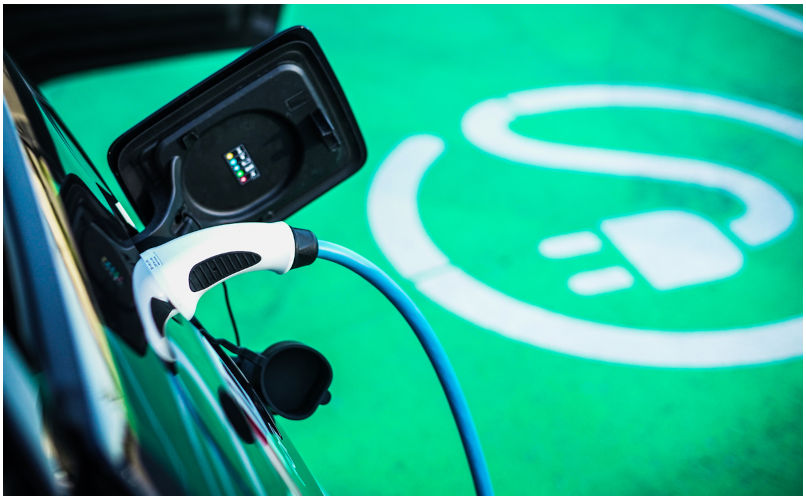A green driving force
February 13, 2024
_China plays a key role in accelerating the global development of the electric vehicle industry _
__
The choice of words concerning fossil fuels phaseout or phase-down bore significant weight at the 28th session of the Conference of the Parties to the United Nations Framework Convention on Climate Change (COP28).
The essence of the challenge to realise a climate consensus on the elimination of fossil fuels lies in states varied economic experiences, politics, resources and technological capacity.
The promises of finances made to the developing countries by the wealthy nations proved to be an utter disappointment at COP28.
As noted by Safa Al Jayoussi, climate justice adviser at Oxfam, developing countries are dealing with a lot of loans from the World Bank and other institutions that are causing more austerity. Adding more pressure to the countries will impact those most vulnerable to climate change.
A recent report by the UN estimates that $387 billion is required annually by developing countries in order to implement domestic climate adaptation priorities.
Importantly, to address climate change, one area of agreement is the transition to electric vehicles, as 60 percent of the global oil demand comes from the transportation sector. It is estimated that cars and vans account for 48.5 percent of global transport emissions.
Many participants at COP28 were enthusiastic in announcing best practices and policies for their EV industry.
According to the International Energy Agency, EVs share in global vehicle sales was 14 percent in 2022 and is likely to increase threefold by the end of the decade.
The World Resources Institute stresses that the share of EVs in the global market needs to be between 75 percent to 95 percent by 2030 in order to stay in line with the global warming target of 1.5 C.
China offers valuable lessons to the developing world through its expanding EV industry. In 2022, the Chinese share of global EV sales was 60 percent.
The International Energy Agency chief recently noted that China is the champion of clean energy. They are the worlds number one in solar, electric cars, nuclear, hydropower everything.
Estimates by UBS suggest that China will have a 33 percent share of the EV global market by 2030.
Chinese companies such as SAIC Motor, Geely and BYD alongside startups such as Nio, Xpeng and EHang are leading the domestic market and catering to customers demands with a growing variety of models and variants.
In 2022, the EV share of the light vehicle market in China increased to 24 percent, from 13.5 percent in the previous year.
A study published in Transport Policy found that a 2009 Chinese policy to promote EVs has resulted in lowering urban transport emissions by an average of 16.3 percent.
China is also a major EV components supplier to companies such as Tesla and Toyota.
Regionally, China is eyeing major EV investments in both raw materials and production. In the long run, China will benefit from lithium supplies from Africa and play a major role in strengthening the international EV market.
Chinese EV companies have promised to invest $1.44 billion in Thailand and to convert 30 percent of the countrys car production to EVs by 2030.
However, this cooperation should not be confined to EV production. Trade in essential parts and raw materials, technology transfer, as well as training of manpower should also be explored.
One study estimated that sales of EVs in Ethiopia, Kenya, Nigeria, Rwanda and Uganda may reach 340,000 to 820,000 units by 2025.
Ghana announced its EV policy at COP28 and highlighted that EV penetration rate will be around 35 percent.
By 2027-35, the Association of Southeast Asian Nations member states such as the Philippines and Indonesia aim to incentivise their EV market through low-cost ownership and tax incentives.
A study by the Center for Strategic and International Studies noted that 20 percent of vehicles in Southeast Asia will be electric by 2025.
Morgan Stanley noted that EVs share of global auto sales is likely to grow to nearly 90 percent by 2050. Chinas profound experience in the EV industry offers promising avenues of cooperation for developing countries.
At present big questions prevail in regard to sources of energy and electricity supply for EV charging.
The International Finance Corporation estimates that $2.8 trillion is required by emerging and developing countries by 2030 for clean energy investments to meet climate goals set under the Paris agreement.
Reliable platforms such as the World Economic Forum, the United Nations Conference on Trade and Development, the International Atomic Energy Agency and the IEA highlight that abundant energy investment opportunities exist in developing countries in areas like nuclear, hydro, solar, and wind.
Advanced economies should look deeper into some of these energy projects, given their past industrial policies and pledges made at earlier COPs. EVs are not the perfect or a stand-alone solution, but they will certainly help to reduce greenhouse gas emissions in the long run.
First published by CHINA DAILY ASIA January 12, 2024
For more on this topic, P&I recommends:
